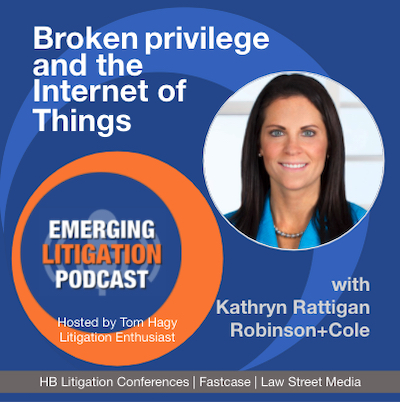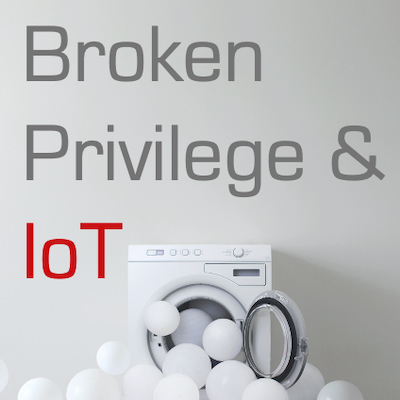Broken Privilege and IoT with Kathryn Rattigan
Broken Privilege and IoT with Kathryn Rattigan Joining me to discuss this emerging area of law is Kathryn M. Rattigan, a member of the Business Litigation Group, the Data Privacy + Cybersecurity Team, and the Drone Compliance Team in the Rhode Island office of Robinson Cole. Kathryn provides clients guidance regarding privacy and data protection in connection with mobile devices, data storage technologies, mobile apps, and location-based services. She assists with the development of website and mobile app privacy policies and terms and conditions. Kathryn is a frequent contributor to the excellent Robinson Cole Data Privacy + Cybersecurity Insider blog. She holds a J.D. from the Roger Williams University School of Law and a B.A. (magna cum laude) from Stonehill College. This podcast is the audio companion to the Journal on Emerging Issues in Litigation, a collaborative project between HB Litigation Conferences and the Fastcase legal research family, which includes Full Court Press, Law Street Media, Docket Alarm and, most recently, Judicata. If you have comments or wish to participate in one our projects, or want to tell me how insightful and informative Kathryn is, please drop me a note at Editor@LitigationConferences.com. Finally, yes, "skeevy" is a word. And the law is not settled as to whether Shiloh has privacy rights. Tom Hagy Host of the Emerging Litigation Podcast There are now billions and billions of interconnected [...]


